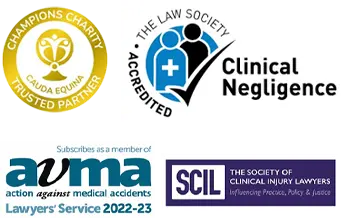
Substandard Surgical Tools Are Putting Patients At Risk
A BBC Panorama investigation has revealed substandard surgical tools from Pakistan are being used by the NHS.
The story derived from findings collated at Barts and the London NHS Trust, the only Trust out of 180 to carry out rigorous safety checks on all surgical tools.
Tom Brophy, the dedicated technologist employed by Barts to carry out such checks, found a prevalence of substandard equipment. He became so concerned he began to document the defects he found.
His records show that 20% of surgical tools were rejected due to being unsafe for use. Faults included instruments with rough edges and corroded metals, while some tools had in fact already been used, with traces of blood evident on equipment being passed off as new.
Brophy highlighted how such flaws put patients in grave danger, not only from serious injury but also from potentially fatal infections. He also suggested that while rejected instruments were sent back to the suppliers, there was nothing to stop the equipment then being sold on to another NHS Trust.
“On more than one occasion a supplier has rung me up and said that the instrument you rejected, I passed it onto another hospital and they accepted it,” he said. “They're going to accept it, because they haven't checked it.”
There are measures in place to help guarantee the safety of surgical tools. Indeed, all of the 916 companies making or supplying surgical instruments in the UK must be registered with the Medicines and Health Care Products Regulatory Agency (MHRA). Furthermore, surgical instruments must meet regulatory standards, with most hospitals carrying out additional visual checks.
However, neither the MHRA nor the NHS requires manufacturers to be inspected, while the responsibility of ensuring quality is left to the suppliers. Although some larger firms do have strict controls in place to inspect their products, many of the smaller companies fail to do so, applying a quality-assured stamp regardless.
This is a particular concern as many companies outsource work to Sialkot, a city in Northern Pakistan which makes two-thirds of the world's surgical instruments. Panorama discovered there are some 3,000 back-street workshops, many of which display a total disregard for hygiene and quality control.
Professor Brian Toft, a government adviser on patient safety, commented on the shocking images revealed by Panorama's secret filming, saying that if procurement officers in the NHS knew of the conditions in which the surgical instruments were being made, they would “faint at the thought of it”.
Can We Help You With A Medical Negligence Enquiry?
Early legal assistance can be vital so please contact us if you would like to discuss your situation. Please call us free on 0800 234 3300 (or from a mobile 01275 334030) or complete our Online Enquiry Form.
Can We Help You With A Medical Negligence Enquiry?
Early legal assistance can be vital so please contact us if you would like to discuss your situation. Please call us free on 0800 234 3300 (or from a mobile 01275 334030) or complete our Online Enquiry Form.



